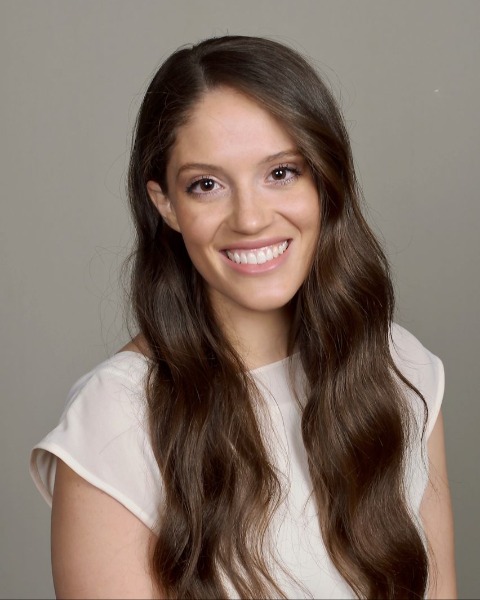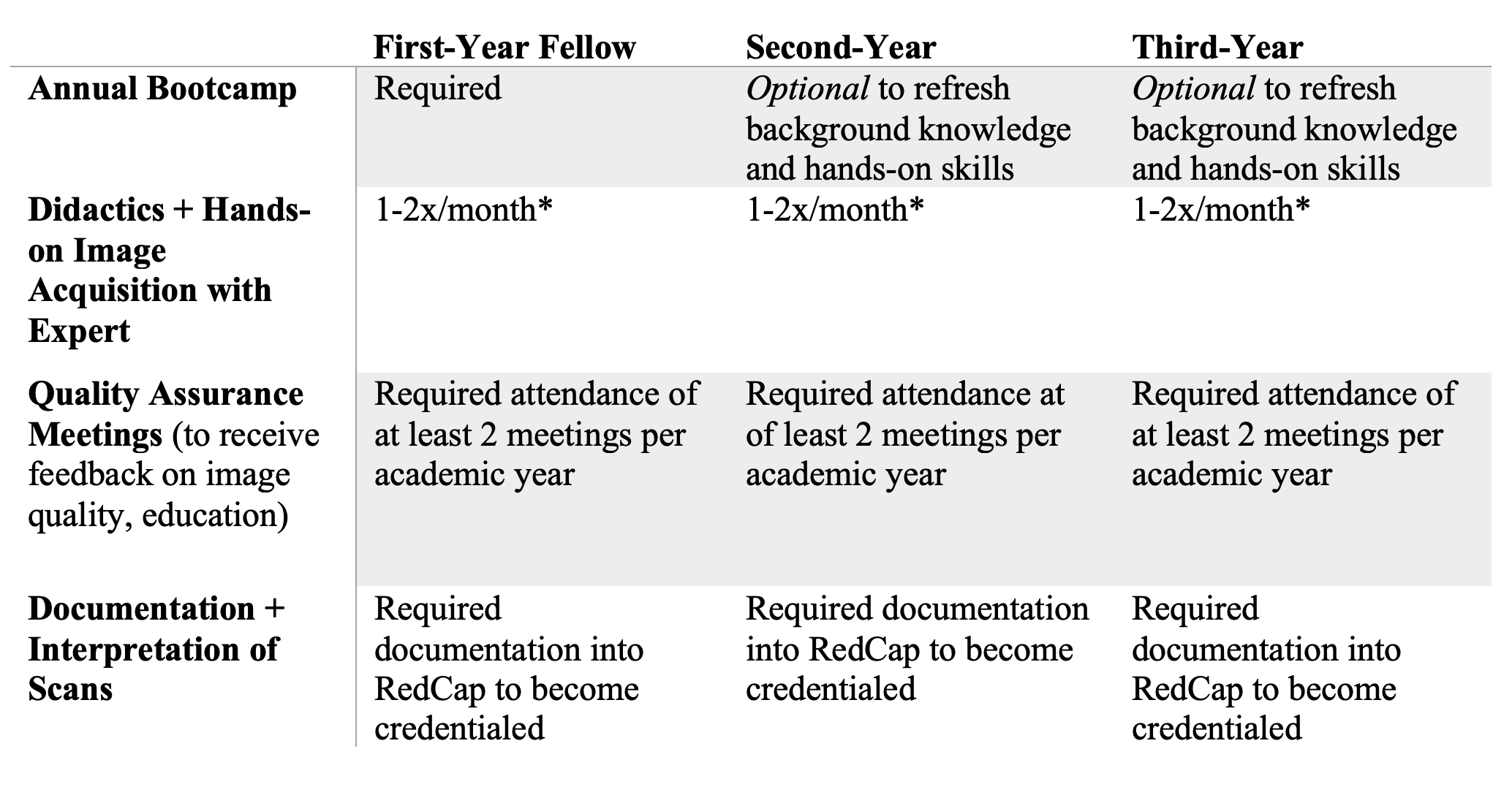Medical Education
Session: Medical Education 2
528 - Increased Neonatal Fellow POCUS Utilization with Development of Structured Educational Curriculum
Friday, May 3, 2024
5:15 PM - 7:15 PM ET
Poster Number: 528
Publication Number: 528.229
Publication Number: 528.229

Faith Myers, MD, FAAP (she/her/hers)
Neonatal-Perinatal Medicine Fellow
Stanford University School of Medicine
Palo Alto, California, United States
Presenting Author(s)
Background: Point-of-care ultrasound (POCUS) is being increasingly utilized in the field of neonatology as it offers an expeditious way to guide procedures, manage common pathology, and determine etiology of a decompensating patient. Recently published AAP reports outlined the need for POCUS programmatic development within the NICU. With growing exposure to POCUS during medical training, incoming fellows are becoming more interested in developing their skills in neonatal POCUS during fellowship. However, the opportunities to learn POCUS varies significantly across the fellowship programs.
Objective: This abstract seeks to describe the current POCUS curriculum for fellows at a tertiary care academic teaching institution with an established POCUS program. In addition, it reveals key “takeaways” of effective POCUS program development and implementation.
Design/Methods: We provide a basic framework for programs seeking to expand their POCUS education by outlining our current program didactics and requirements. In addition, we reveal trends over time in documented image acquisition by fellows.
Results: A basic structure of fellow education is displayed in Table 1. POCUS “Bootcamps” are offered annually to fellows to introduce basic knowledge and practice hands-on skills with multidisciplinary experts. Fellow didactics and hands-on practice sessions with experts are held 1-2 times per month by both attending staff as well as visiting professors with expertise in various areas of POCUS. Fellows are invited to attend quality assurance meetings as often as every two weeks to review the images they have obtained. During these sessions, an expert in the field determines whether the clinical question was adequately answered with the images obtained by the trainee. In addition, the POCUS expert offers advice on optimizing technique and image quality. As these educational opportunities have become more established, there has been an increase in image acquisition over time. See Figure 1.
Conclusion(s): POCUS education is highly sought after by incoming neonatal-perinatal fellows, but there is a lack of formalized curriculum within the field. The current construct within our NICU has resulted in increased utilization of POCUS by fellows in the unit and provides a basic framework for standardization of POCUS fellow education.
Our longitudinal fellowship POCUS education is feasible to integrate into neonatal-perinatal fellowship training programs with a commitment to continuing education, maintenance of equipment, and retention of trained personnel.

.png)
